Hemp, a versatile plant from the Cannabis sativa species, has been cultivated for thousands of years for various purposes, including its use as a food source. With its impressive nutritional profile and a range of potential health benefits, hemp has gained popularity as a nutritious and sustainable dietary option. In this article, we will explore the benefits of including hemp in your diet and examine why hemp is considered good to eat.
Nutritional Value of Hemp Seeds
Hemp seeds, the edible part of the hemp plant, are highly nutritious and offer a wide range of essential nutrients. They are a rich source of plant-based protein, containing all nine essential amino acids that the body needs but cannot produce on its own. This makes hemp seeds an excellent option for vegetarians, vegans, and individuals looking to increase their protein intake.
In addition to protein, hemp seeds are packed with healthy fats, particularly omega-3 and omega-6 fatty acids. These fatty acids play crucial roles in supporting heart health, brain function, and reducing inflammation in the body. The ratio of omega-6 to omega-3 fatty acids in hemp seeds is considered optimal for maintaining a healthy balance in the body.
Hemp seeds are also a good source of dietary fibre, which aids in digestion, promotes feelings of satiety, and supports healthy blood sugar levels. They contain an array of vitamins and minerals, including vitamin E, magnesium, potassium, phosphorus, and zinc.
Health Benefits of Hemp as a Food
-
Heart Health: The balance of omega-3 and omega-6 fatty acids in hemp seeds can help reduce the risk of cardiovascular diseases by lowering cholesterol levels, improving blood pressure, and reducing inflammation in the arteries.
-
Digestive Health: The fibre content in hemp seeds supports healthy digestion by promoting regular bowel movements, preventing constipation, and supporting the growth of beneficial gut bacteria.
-
Skin Health: Hemp seeds contain antioxidants, such as vitamin E, which help protect the skin from damage caused by free radicals. Including hemp in your diet may contribute to healthier skin, reduced inflammation, and improved overall skin appearance.
-
Brain Function: The omega-3 fatty acids in hemp seeds are essential for brain health and function. They support cognitive function, memory, and may even help reduce the risk of neurodegenerative diseases.
-
Plant-Based Protein Source: Hemp seeds are an excellent source of plant-based protein, making them an ideal option for individuals following vegetarian or vegan diets. Protein is essential for building and repairing tissues, supporting muscle health, and providing sustained energy.
-
Nutrient-Dense and Energy Boosting: Hemp seeds provide a wide range of essential vitamins, minerals, and other beneficial compounds. Including them in your diet can help ensure you are getting a nutrient-dense food source that supports overall health and vitality.
Incorporating Hemp into Your Diet
Adding hemp food products to your diet is easy and versatile. Here are a few simple ways to incorporate hemp into your meals:
-
Sprinkle hemp seeds on top of salads, yogurt, or oatmeal for added texture and nutritional value.
-
Blend hemp seeds into smoothies for an extra protein and nutrient boost.
-
Use hemp seed oil as a dressing for salads or drizzle it over roasted vegetables for a nutty flavour.
-
Include hemp protein powder in your post-workout shakes or use it as an ingredient in homemade protein bars or energy balls.
-
Replace traditional flours with hemp flour in baking recipes to increase the nutritional content of your baked goods.
Hemp is a highly nutritious and versatile plant that offers a range of health benefits when incorporated into your diet. With its rich protein content, healthy fats, and array of vitamins and minerals, hemp seeds provide a valuable addition to a balanced eating plan. Whether you choose to enjoy hemp seeds, hemp seed oil, or hemp protein powder, incorporating hemp into your meals can support heart health, digestion, brain function, and overall well-being.



